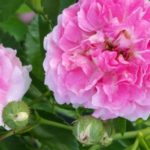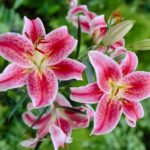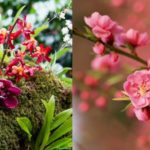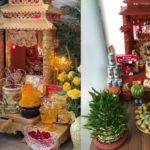Flowers are one of the essential items when the homeowner offers incense to show respect to ancestors on special holidays or occasions. However, not all flowers can be placed on the ancestral altar, as it may ruin the family’s prosperity. Below are the prohibited flowers.
Forbidden flowers to offer on the ancestral altar
+ Fake flowers
Types of wax, silk, and plastic flowers should not be used on the altar. Worshiping is essential in sincerity and life force is needed on the altar. Therefore, it is not advisable to display fake flowers as it lacks sincerity. The altar needs life force, and if you place fake flowers, it lacks sincerity and vitality. This directly affects the life force of the altar.
+ Lilies
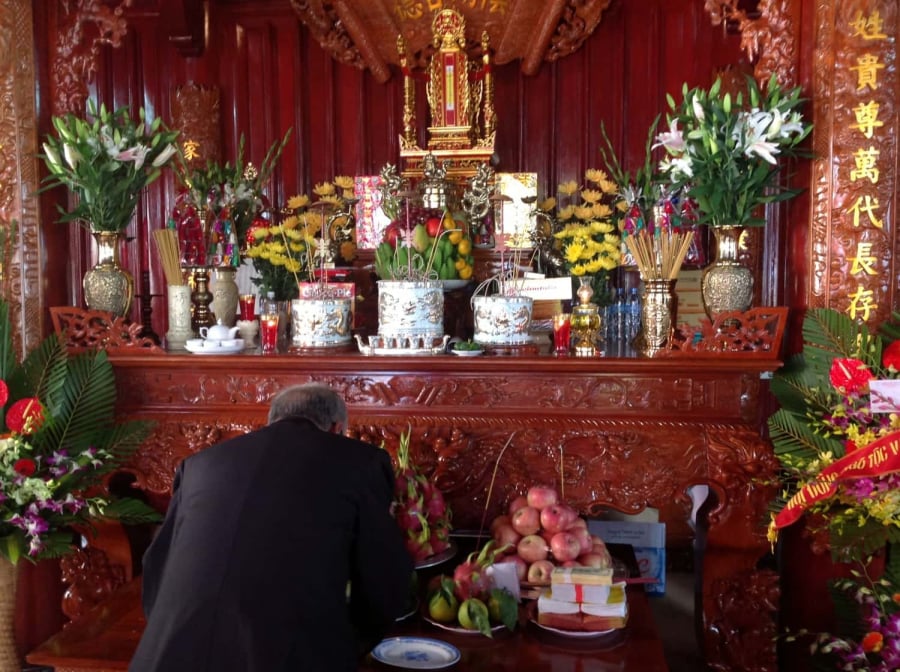
Many people do not worship lilies because they believe that lilies symbolize separation and farewells. However, some Feng Shui experts believe that the smell of lilies is heavy and attracts insects to the altar. On the other hand, if you have limited space and place lilies on the altar, it will make the space stuffy.
+ Orchids with dragon claws
This is a fragrant flower but not used for worship because its petals resemble dragon claws, and the name of the flower is not beautiful. That is why this flower is not used for worshipping ancestors.
+ Chrysanthemums
You need to distinguish between longevity chrysanthemums and yellow chrysanthemums for worshiping. Longevity chrysanthemums are only used for decoration. When smelling them up close, the odor of longevity chrysanthemums is very unpleasant. Feng Shui considers the foul smell as negative energy. Placing longevity chrysanthemums on the ancestral altar will reduce the positive energy beneficial to the altar.
In addition, you should choose a suitable-sized vase that matches the space and the arrangement in the living room to avoid messing up the aesthetics.
Which flowers should be offered on the ancestral altar?
According to many spiritual practitioners, nowadays, besides incense coils, cups of water, plates of food, Vietnamese families always have beautiful flower vases on their altars instead of the old-fashioned flower plates. In Buddhism, offering flowers represents purity, fragrance, and the act of offering good things, expressing respect, gratitude, and worship to the Buddha and ancestors, regardless of the material value.
There are hundreds of flower arrangements that are beautiful and fragrant for worship. However, not all flowers can be used for offerings, but the flowers chosen for worshiping should be appropriate to make the ceremony more solemn and respectful.

Depending on the season, the offering flowers are chosen, but traditionally, people choose flowers with beautiful names and fragrances for worship. Basically, chrysanthemums, roses, lotus flowers, orchids, jade orchids are used for offerings. Each flower offered on the ancestral altar needs to understand its meaning, and it varies by region. One should be flexible in using flowers according to the local tradition, not being stubborn, nor too relaxed, as in some places where flowers are rare, people cut young banana trees to decorate the altar.
Too many different types of flowers offered will reduce the elegance and aesthetics. It is better to choose fragrant flowers with beautiful names, beautiful flower characteristics, and only offer flowers of one color to create solemnity.
Many families have separate altars for Buddha, and offering flowers to the Buddha should choose flowers with yellow and red colors such as single flowers, yellow chrysanthemums, red roses, etc., which symbolize the Buddha’s sacredness to make the altar dignified. (Meticulous people do not choose pink flowers or other colors). Choose large blooming flowers and select carefully because sometimes, due to weather changing, many flowers have hollow holes in the middle or withered leaves.
For ancestral altars, offer the same flowers as Buddha’s altars, but you can also choose additional flowers with different colors. Note:
– Buy tulips for long-lasting use.
– Chrysanthemums have a nice name, bright yellow color, symbolizing luck and prosperity (used a lot in Central Vietnam).
























